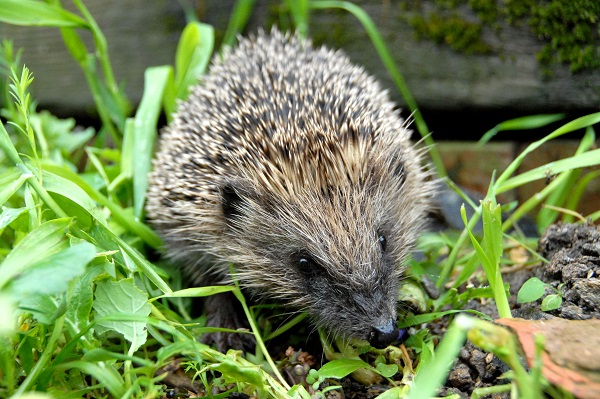Hedgehogs in Rural Decline
But there's a more positive outlook for urban areas and you can help

At least half the population of our native hedgehogs has been lost from the British countryside over the last two decades, but they're still to be found in urban areas and a campaign is underway to try and encourage more.
A new report ''The State of Britain’s Hedgehogs 2018'' published jointly by the British Hedgehog Preservation Society (BHPS) and People’s Trust for Endangered Species (PTES), numbers of hedgehods in rural areas has plummeted by half since the Millennium.
“There are many reasons hedgehogs are in trouble,” explains Emily Wilson, Hedgehog Officer for Hedgehog Street, a public action campaign run by PTES and BHPS.
“The intensification of agriculture through the loss of hedgerows and permanent grasslands, increased field sizes, and the use of pesticides which reduce the amount of prey available, are all associated with the plunge in numbers of hedgehogs in rural areas.”
However, with approximately 70% of land in the UK managed by farmers, BHPS and PTES are planning to engage with the farming community to help protect this iconic creature.
“Farmers play a vital role in producing food, but they’re also well placed to help protect, maintain and enhance our countryside,” continues Wilson. “The Government recently reiterated plans to reform the EU Common Agricultural Policy to reward landowners for delivering environmental benefits. Many farmers already have a sustainable approach to agriculture, and we think there’s a great opportunity to work more widely with them to stem the alarming decline of our country hedgehogs.”
Whilst the report highlights a worrying decline in the countryside, it shows a more positive outlook for hedgehogs in our towns and cities: although the species has declined by a third in urban areas since 2000, the rate of decline is slowing. Hedgehogs are not disappearing from urban green spaces as rapidly as they were fifteen years ago, and might even be returning. Where they are found, numbers too, appear to be growing in some places.
PTES and BHPS launched Hedgehog Street in 2011 to inspire the British public to help hedgehogs and other wildlife that depend on their gardens and, so far, over 47,000 Hedgehog Champions have signed up to help.
Wilson concludes: “Urban and suburban areas are becoming increasingly important for hedgehogs, so we need more people in those locations to sign up as Hedgehog Champions. Hedgehogs are a generalist species, so the more people can do to help them in their own back garden, the more they will also benefit other wildlife.”
How to help hedgehogs
Visit www.hedgehogstreet.org and:
- Become a Hedgehog Champion and find simple advice on making your garden and neighbourhood more hedgehog-friendly
- Pledge to make a small hole – no bigger than a CD case – in your garden fence, wall and other barriers so that hedgehogs can access different gardens in their search for food, shelter and mates
- Log your ‘hog sightings – dead or alive – on The BIG Hedgehog Map
6 February 2018
Related links
|